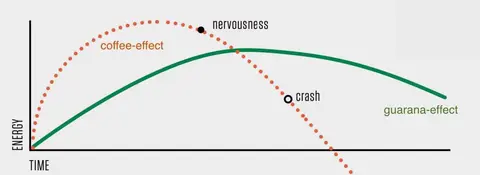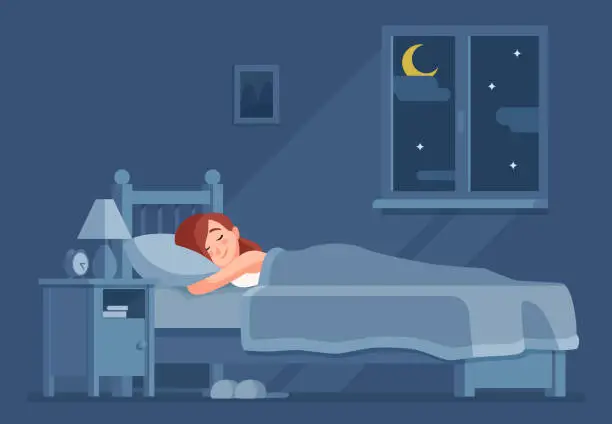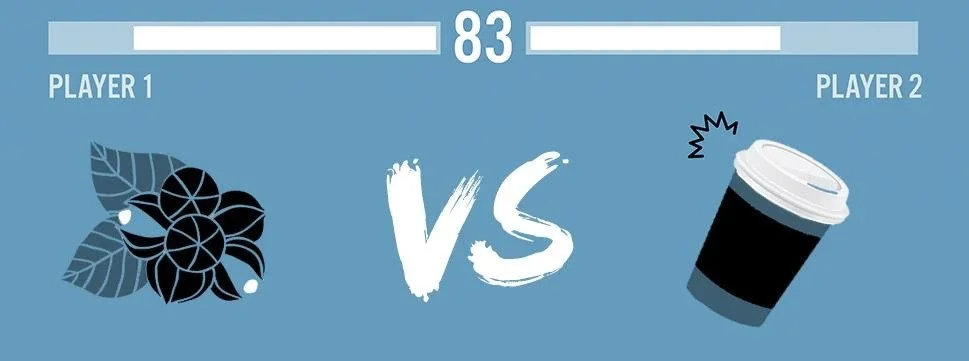We surely all know that moment before an exam when we think, “Ah, if only I had half a day or a day more to review” or “If only I had started a day earlier”? I think this has happened to each of us multiple times. In my first year, I heard about guarana, and it sounded perfect. You drink it and you’re not tired, you can study, and your wish for a little more time has been granted.
But is it truly as perfect as it sounds? Which is better, coffee or guarana? I’ll describe here my experience with guarana and whether I still use it.
What is guarana and where does it come from?
Guarana is a plant that grows in Brazil and is characteristic of the Amazon region. It is valued for its fruit, which resembles a coffee bean and is red. Inside, it contains black seeds from which guarana extract is derived.
This plant is rich in antioxidants and has a very similar composition to green tea. Its seeds contain up to 6 times more caffeine than coffee beans. This caffeine helps reduce fatigue and improve focus. Caffeine blocks the effects of adenosine, which is naturally produced in our brain and it builds up as time passes while we’re awake, consequently makes us tired and helps the brain rest. So, since adenosine is blocked by caffeine, we’re not able to feel tired.
Some research has shown that low doses of guarana help mental performance better than high doses. Additional molecules found in the plant besides caffeine are believed to be the reason. Research subjects paid more attention to the given task and completed it faster. Additional animal studies have shown that it improves memory too.
Coffee vs. Guarana
Many people can’t imagine starting the day without a cup of coffee, and some drink coffee throughout the day. Is there perhaps a better choice than coffee?
Per the research from 2023, coffee beans on average contain 1-3% caffeine, while guarana seeds contain up to 8%—that’s almost thrice as much. 1:0 for guarana!
Guarana seeds contain more caffeine, meaning they better stimulate the nervous system. An interesting fact is that guarana contains more caffeine than any other plant in the world! The positive effects of guarana come not only from caffeine but also from other natural molecules. These molecules promote gentle and slow energy release so that focus remains constant. This is the opposite of what coffee does. When coffee is consumed, there is usually a sudden surge of energy followed by a rapid drop after some time. That’s why people often drink coffee several times a day to avoid a sudden slump. So, when it comes to coffee vs. guarana, it’s 2:0 for guarana!

When we talk about cognitive function, we mean overall mental ability, including memory, decision-making, problem-solving, awareness, and information processing skills. For people who value cognitive function, coffee is a good choice because caffeine from coffee improves it and may even positively affect long-term memory. But is there a better choice?
In one study, low doses of guarana and caffeine blockers were applied, and the results still showed improved cognitive function. This result was not influenced by caffeine but by other molecules in guarana. Their unique combination provides much better results than coffee alone, so 3:0 for guarana!
Even though coffee is one of the most well-known caffeinated beverages in the world and sometimes even a part of local culture, guarana is a better choice. Consuming large amounts of coffee can cause anxiety, tachycardia, concentration issues, and tremors. On the other hand, guarana has a gradual effect and doesn’t cause sudden energy fluctuations when consumed in smaller, recommended doses. After comparing coffee and guarana, it’s clear that guarana comes out on top. A daily dose of guarana (75-100 mg) can increase productivity and cognitive ability. However, if you’re looking for a one-time, significant boost in energy and are aware that you’ll need to catch up on sleep later, you can take a higher dose.
My Experience with Guarana
So far, I only had words of praise for this “magical” plant. Unfortunately, I have to disappoint you, my experience was not like that.
I remember it as if it were yesterday, my anatomy exam was approaching. I studied around the clock, but there was never enough time. That’s why one day, I went to the drugstore and bought a box of guarana. I returned to my room, studied until I began to feel sleepy, and then decided to try guarana. I was quite skeptical about it, so I drank it with a cup of coffee instead of a glass of water (don’t do that, it’s not necessary!). In no time, I no longer felt tired and continued to study. I studied until I felt like it, and then I went to bed. I struggled a bit to fall asleep, but nothing extraordinary.
So far, everything seems great, right? Well, the next morning, problems caught up with me. I could barely open my eyes, feeling like I was run over by a truck. I attended anatomy exam, barely keeping my eyes open. When I returned to my room, I just went to bed and fell asleep.
From this experience, I learned that however much sleep you take away, you’ll have to make up for it. Our body needs to rest to function normally. I didn’t try to stop the fatigue with guarana again because it didn’t seem healthy or wise. I was as tired as if someone had woken me up at 3 in the morning, completely lost.
Sometimes I still take guarana, but those are very rare occasions. It happens during my exams. Let’s say if I have an exam at 8 or 9 in the morning, I get up at 4:30 – 5:00 am. Then I drink guarana, just enough to review what I need to and go take the exam. After that, I usually go back to my room and sleep for 2 to 3 hours because that’s when the fatigue catches up with me.

You might wonder what about my statements that energy from guarana is released slowly and steadily? Honestly, when I read that information, I didn’t understand how my experience was so different. I went to check the box for the dosage in one capsule I took and was shocked. One capsule contains a minimum of 600 mg of caffeine! The recommended dose and the most effective one is 75-100 mg.
Such high doses are very dangerous if consumed daily, and they may be responsible for these sudden changes in energy. Therefore, if you want to consume guarana daily in desirable quantities, first familiarize yourself with the product and its composition. If you regularly use any medication, you need to check if guarana has any effect on them.
Alternative Energy Sources
Through some research, I discovered that there are preparations that can also be used as a substitute for coffee and provide additional energy. They are: Maca powder, Muira Puama, and Ashwagandha. I couldn’t find any information about their effects on cognitive function, but if I ever use them, you’ll find out in one of the following blog posts.
